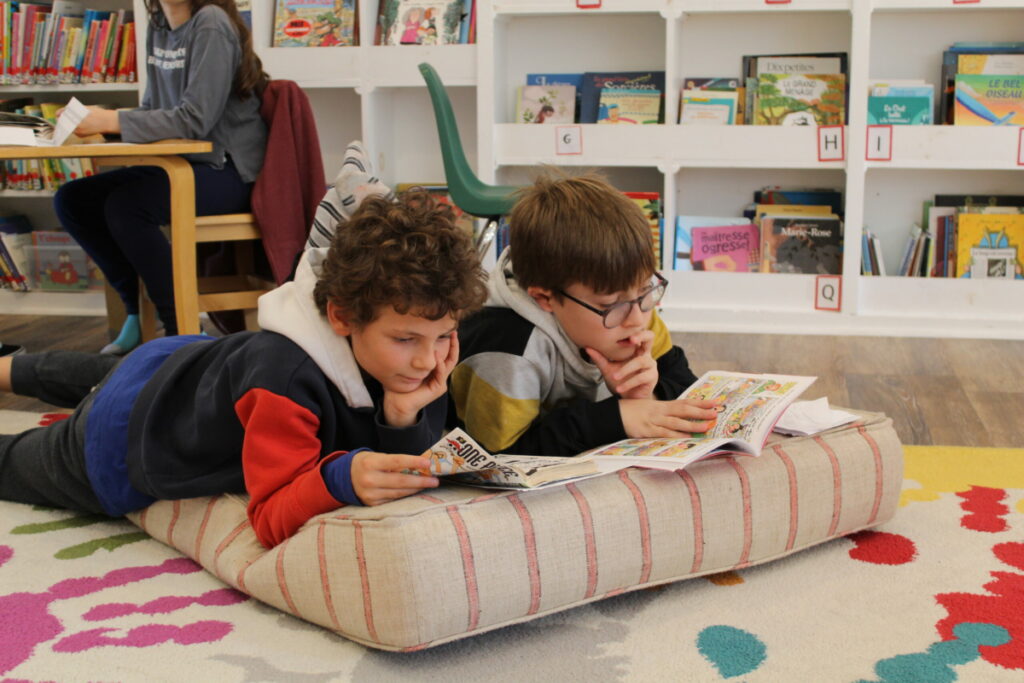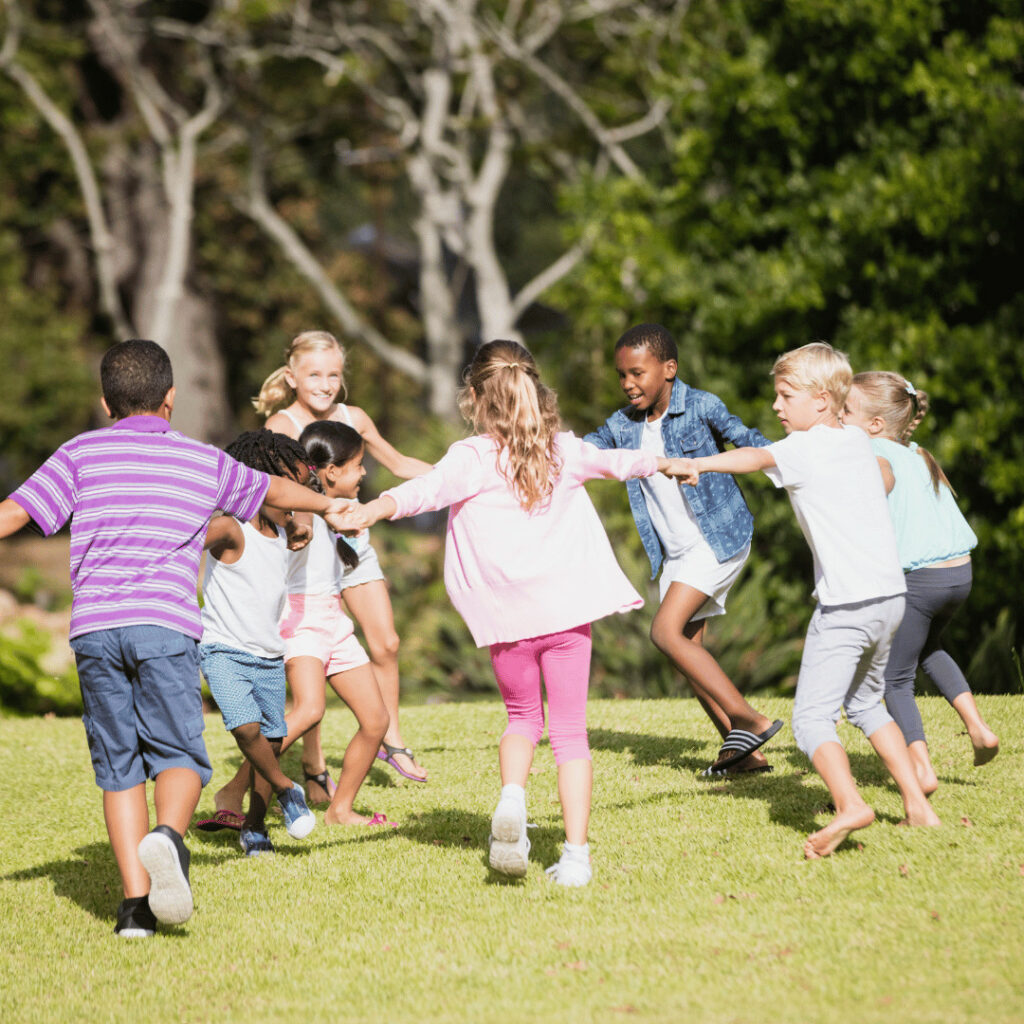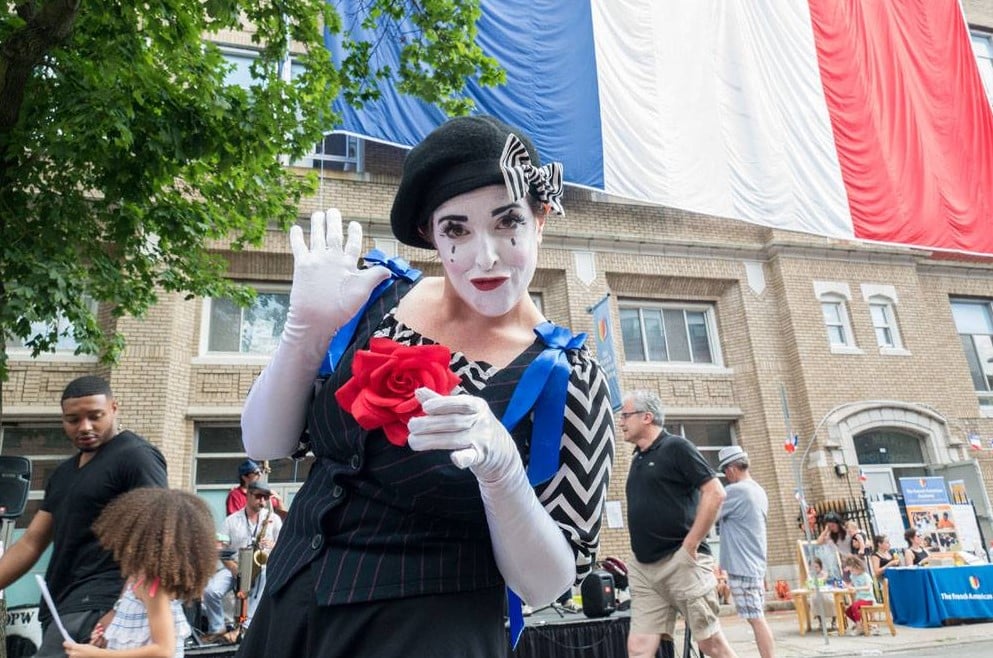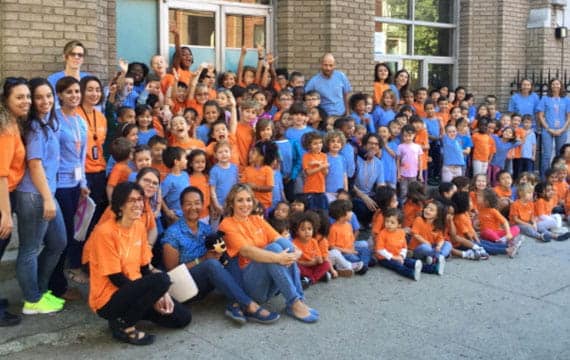Have you ever watched your preschooler try to join a group of kids at the park? Or seen your child offer a toy to a friend or sibling? These small moments are more than just play. They are the building blocks of lifelong skills.
Preschool isn’t only about learning letters, numbers, shapes, and colors. It’s also a critical time for developing essential social-emotional skills. Social skills are learned behaviors that enable individuals to interact appropriately and effectively in their environment, which includes forming and maintaining meaningful relationships, and developing skills like emotional regulation, communication, empathy, social awareness, cooperation, and understanding.
In these early years, children begin learning how to build relationships, a skill that will carry them into adulthood and play a vital role in their interpersonal connections, confidence, and future learning. These early lessons highlight why socialization in preschool is important not just for early friendships but also for long-term growth and success.
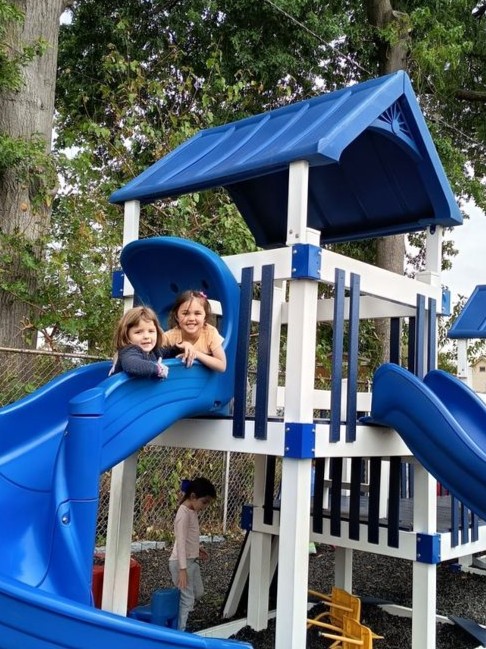
The Role of Teachers in Socialization
Socialization begins at home, as children first learn to interact with their parents and family members. However, this process deepens as they enter preschool, often their first real social environment. During this period, children have daily opportunities to apply newly learned social skills with peers, both inside and outside of school.
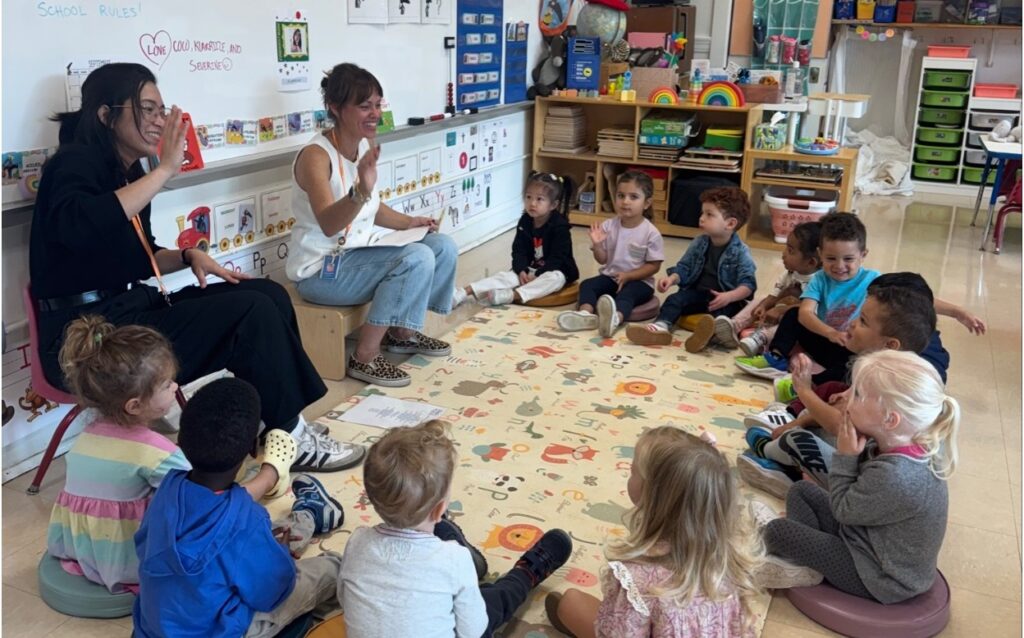
Inevitably, teachers play a powerful role in a child’s social-emotional development. In the classroom, teachers consistently model positive social interactions and thoughtfully structure the environment so children can practice their developing social skills each day through routines, teacher-child interactions, and peer engagement. Naturally, students are required to interact with classmates in activities such as cooperative play, circle time, and group projects (Maleki et al., 2019). In addition, teachers draw on their past experiences to observe situations, identify barriers that may impact skill development, and recognize when social behaviors may be a cause of concern (Bartlett, 2023).
The Parents’ Role: Why Socialization Doesn’t Stop at School
While the classroom provides daily opportunities for children to learn and practice social skills, learning does not end at school. Parents can reinforce and expand on these skills by creating social experiences beyond the classroom.
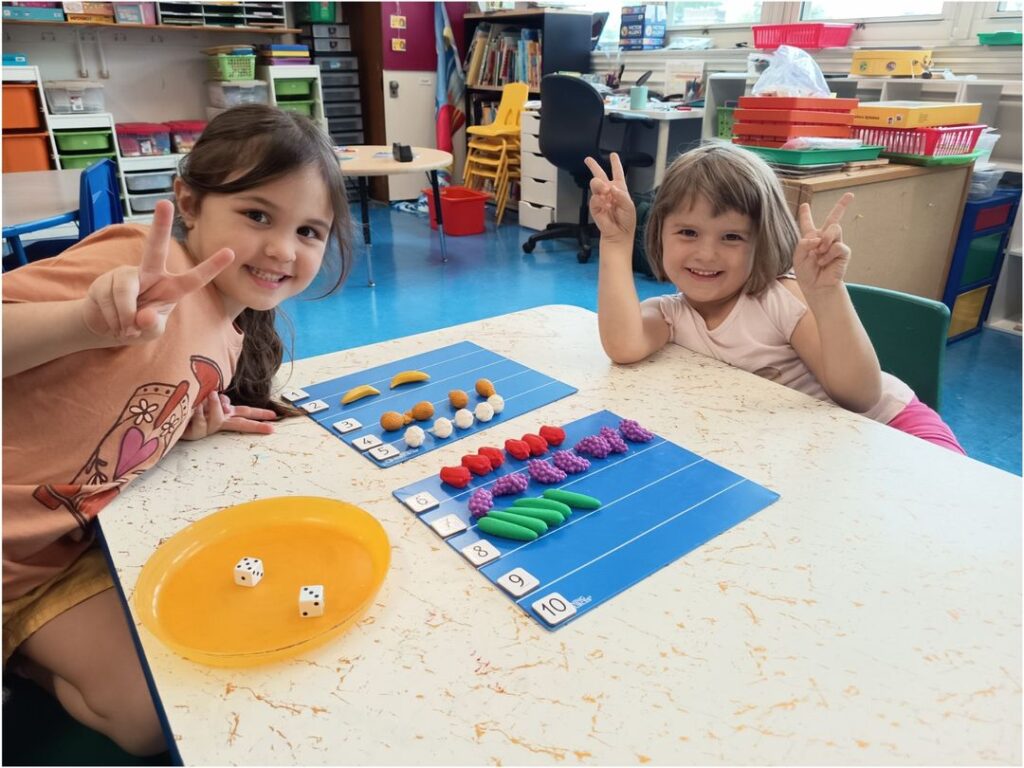
For example, this may include arranging playdates, thoughtfully organizing play at home, involving children in extracurricular activities, and modeling positive interactions at home. Doing so allows children to practice skills like turn-taking and problem-solving in different contexts, strengthening the skills initially introduced in school.
When parents actively facilitate the socialization process, they help their child build confidence, navigate different social situations, and develop the skills needed for healthy social-emotional functioning. This involvement also bridges these two key contexts, home and school, in a child’s early development. Not only does socialization outside the classroom reinforce the skills learned in school, but parents can also collaborate with teachers to address any problem behaviors and ensure consistent support across home and school (El Nokali et al., 2010). In other words, understanding why socialization in preschool is important also means recognizing how parents extend and reinforce those lessons beyond the classroom.
Why Is It Important to Have Strong Social Skills?
Research shows that strong socialization in preschool leads to (Maleki et al., 2019):
- Improved social skills, such as making and maintaining positive friendships
- Greater school readiness and stronger academic achievement
- A smoother transition into formal schooling
- Stronger cognitive and emotional development, including identifying feelings, expressing them, and communicating effectively
- Growth in communication and language skills
Socialization outside of school also gives parents an important window into their child’s development. Watching your child interact in playgroups, on the playground, or during community activities can reveal both strengths and potential areas of challenge. Some children may struggle with sharing, communication, or emotional regulation. Left unaddressed, these difficulties can contribute to issues making friends, loneliness, behavior problems, or trouble adjusting in school. These social experiences are deeply connected to the broader developmental milestones children build in early education, such as communication, independence, and emotional regulation, many of which are outlined in skills your child will develop in preschool.
Identifying these struggles early gives families the chance to provide extra support, helping children strengthen social skills and prevent avoidable difficulties later on (Maleki et al., 2019).
How Socialization Relates to Diversity and Inclusion
Another reason the preschool years are so crucial is that children begin to develop an understanding of diversity. While toddlers may notice differences such as race and gender, they do not yet attach meaning to them.
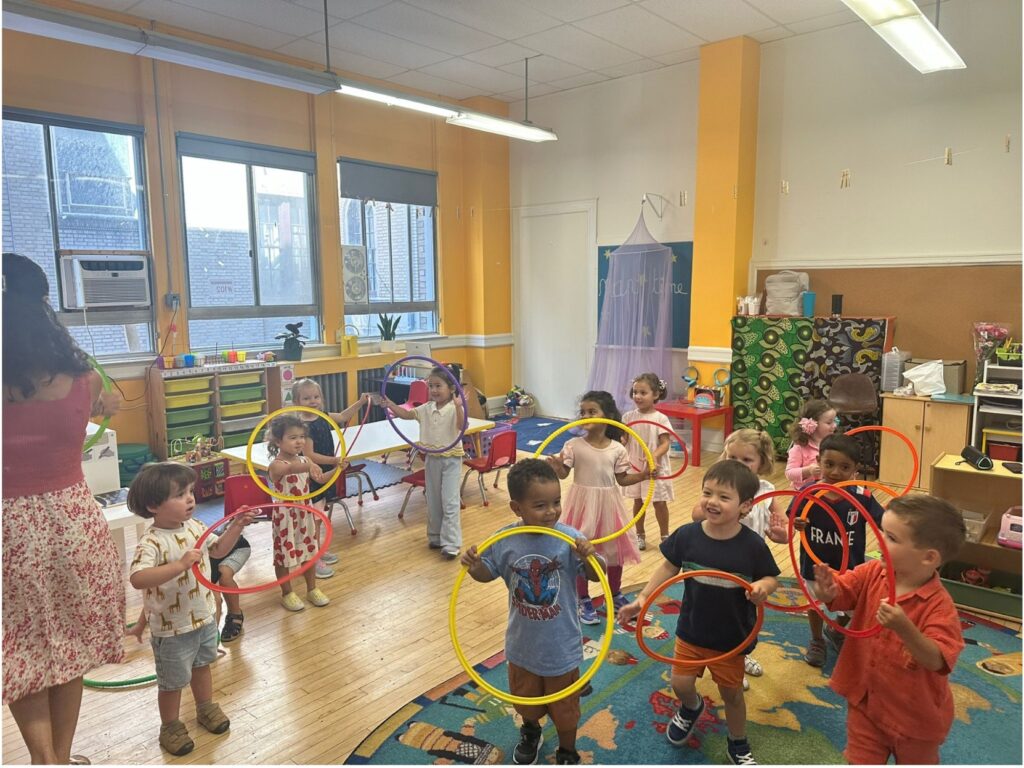
In preschool, children start observing how others talk, act, and interact, and begin forming ideas about what those differences mean. By around age five, many children can even express their own preferences and act on racial or gender differences. This is why parents play such a powerful role in shaping early beliefs and perceptions. In addition to what children learn through a social-emotional curriculum at school, it’s equally important for families to create opportunities for children to socialize with peers from diverse backgrounds, cultures, and experiences. Parents also model, through their own words and actions, how to navigate a world full of differences and inequalities. It is in these moments that children begin learning how to respect, include, and empathize with one another (Miller, 2019). These lessons foster acceptance and open-mindedness, qualities that can’t be fully taught through classroom instruction alone.
Practical Tips for Parents to Support Socialization
So, what can you do at home to better support your child’s social development? Here are a few easy ideas, supported by current research (Ainslie, 2024) (Bartlett, 2023):
- Give them time and space – Set aside free time and a special spot for your child to play, whether it’s outside or in a cozy corner at home. It’s also important to let them play on their own sometimes, giving them the freedom to explore and use their imagination.
- Offer engaging materials – Keep simple, fun, and stimulating toys or games around that spark creativity and imagination
- Arrange playdates – Organize short, structured playtimes with one or two friends are a great way to practice social skills
- Model appropriate social skills – Demonstrate prosocial behaviors and show your child how to say things like “please” and “thank you,” and how to start a conversation
- Encourage unstructured play – Play board games, tell stories, build forts, or try simple “cause-and-effect” experiments together (e.g., “What will happen if I roll this ball into our Lego tower?”). Make sure your child gets to choose the activity and take the lead, giving them a chance to practice starting interactions and using expressive communication.
- Try guided play – Join in your child’s play and gently guide them toward a goal like turn-taking or cooperation, while still letting them take the lead. You might do this by asking questions, making suggestions, or playing alongside them the way a peer would.
- Care and Coach through Challenges: When challenges come up, like shyness or conflicts, encourage your child, support their ideas, and help them problem-solve without taking over.
These practical strategies show that while socialization in preschool is important, parents also have countless opportunities to extend those lessons into everyday life.
How to Handle Preschool Socialization Challenges and Conflicts
Even with teachers’ and parents’ best efforts, it’s also completely normal for preschoolers to experience bumps along the way as they learn social skills and navigate new friendships.
Conflicts between peers often come up, whether it’s big feelings during play, disputes over toys, competition, jealousy, or challenges with sharing and turn-taking. Some children may naturally problem-solve more quickly, while others may need a little extra guidance and support. For example, shy children may need gentle encouragement to join in, while very energetic children may do best with clear rules and chances for more active, movement-based play.
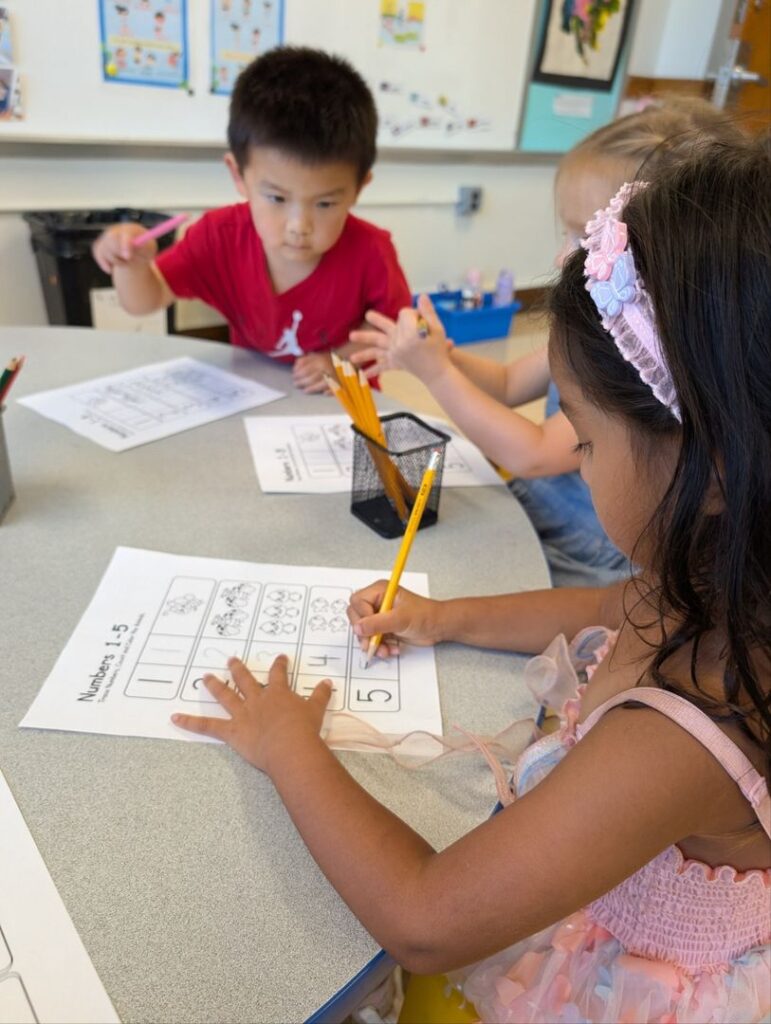
The good news is that each of these challenges is also an opportunity. Moments of conflict or frustration serve as valuable teaching moments, giving children the chance to observe how conflicts are resolved, to learn from peer modeling, and to practice important skills like empathy, perspective-taking, and problem-solving. With patience, consistency, and support, these everyday struggles can become pivotal steps toward stronger and consistent social-emotional growth (Smith, 2023).
Why Socialization in Preschool Is Important for Building the Foundation of Your Child’s Growth
Ultimately, preschool is about so much more than academics. It’s the foundation for a child’s ability to build and maintain positive relationships. By the end of these years, children are learning how to cooperate with others, understand their own and others’ feelings, play in more organized and imaginative ways, and show empathy, concern, and kindness. They’re also becoming more capable of sharing and expressing a wider range of emotions. These social skills can’t simply be “taught” through lessons on the carpet. Children grow through real-life experiences, which is why giving them opportunities to socialize and interact with others outside the classroom is so important for building the social and emotional foundations that shape who they will become. As parents, you play a key role in bridging the experiences at home and school. Every story told, every tower built, and every game played on the playground is helping your child practice important skills and shaping the kind of friend and person they will grow to be.


